Interim ’22
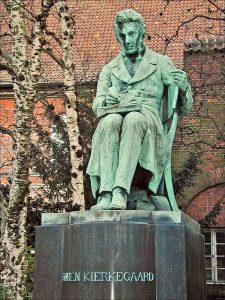
Students continue developing proficiency in spoken and written Norwegian, increasing their vocabulary, improving grammatical accuracy, and gaining experience reading and listening to authentic materials. Offered annually in the spring semester.
This is a part of our “fast track” option: NORW 111 in the fall, NORW 112 in interim, NORW 231 in the spring.
Prerequisite: NORW 111 or equivalent.
“The Ethics of Print: Hans Christian Andersen, Søren Kierkegaard, and the Danish Golden Age” will explore the literary polemics of the period (ca. 1800-1850) involving the two figures named in the title. The course counts towards the Philosophy and Norwegian majors, and the Nordic Studies concentration.
Link to video description.
GE: EIN | WRI
OLE CORE: ERC
Students learn how gender is perceived, constructed, and experienced in contemporary Norway, using psychological and sociocultural perspectives to explore topics such as family life, youth development/empowerment, education, employment, media/advertising, health, and sexuality. They also examine Indigenous Sámi and immigrant perspectives. Lectures, site visits, and other field experiences augment scholarly readings and contribute to an understanding of gender equality as a foundational guiding principle and practice in an increasingly diverse Norwegian society. Also counts toward Norwegian and gender and sexuality studies majors and Nordic studies and gender and sexuality studies concentrations.
Prerequisites: PSYCH 125 or a course in Nordic studies, gender and sexuality studies, family studies, or sociology/anthropology, or permission of instructor; PSYCH 241 or PSYCH 249 strongly recommended.
Spring ’22
Students continue developing proficiency in spoken and written Norwegian, increasing their vocabulary, improving grammatical accuracy, and gaining experience reading and listening to authentic materials. Offered annually in the spring semester.
Prerequisite: NORW 111 or equivalent.
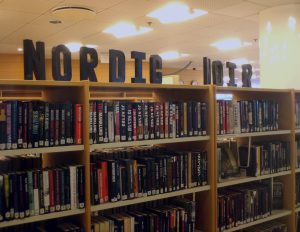 The “whodunit” is an entertaining way to spend a lazy evening in front of a fireplace, hot chocolate within handy reach. But what is it that makes these novels so engaging, and what can we learn about the society that produces them? In this course we examine contemporary Nordic society through the lens of detective and crime fiction, tracing changes in societal concerns throughout the development of the genre at the same time as we examine the structure and aesthetics of what makes a good crime novel.
The “whodunit” is an entertaining way to spend a lazy evening in front of a fireplace, hot chocolate within handy reach. But what is it that makes these novels so engaging, and what can we learn about the society that produces them? In this course we examine contemporary Nordic society through the lens of detective and crime fiction, tracing changes in societal concerns throughout the development of the genre at the same time as we examine the structure and aesthetics of what makes a good crime novel.
LINK to video description.
GE: WRI, ALS-L
GE: WAC
Students improve proficiency in listening, speaking, reading, and writing, with an emphasis on communication as well as improved grammatical accuracy. Reading and discussion of authentic literary and cultural texts allow students to expand their vocabulary and knowledge of the Norwegian way of life. Offered annually in the fall semester.
This is the third course in the “fast track” option.
NORW 111 in the fall, NORW 112 in interim, NORW 231 in the spring.
Prerequisite: NORW 112 or equivalent
Norsk 232 er et kurs i norsk på mellomnivå, og dette semesteret tar vi opp emner som norsk identitet, historie, Norge i verden og litteratur og medier. Vi studerer Norges moderne kultur ved å diskutere et variert utvalg av norske artikler, filmer og en TV-serie.
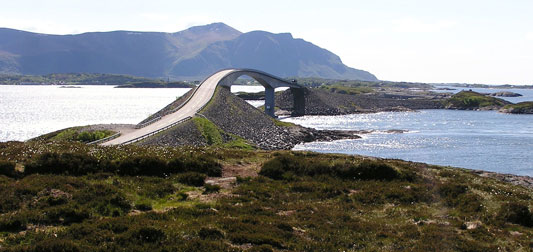
One unique aspect of our program is that we offer a yearly topics course in Norwegian for students who have completed the fifth semester of Norwegian (NOR 253). This allows those students who have some previous Norwegian learning experience prior to coming to St. Olaf the opportunity to take this multiple times (we have had two students take 4 iterations of the course!). Each year we focus on different content areas and different skill sets (writing vs. speaking for example) to offer a wide variety of experiences each year. Recent topic descriptions:
2021-22: Okkupasjon, flukt og krig (NORW 373)
This advanced Norwegian course investigates media portrayals of occupation, exodus, and war throughout Norwegian history. Each portrayal will be paired with an article or literary excerpt that further contextualizes the historical event. With Nordic noir as our starting point, we will first examine a futuristic political TV drama before transitioning to historic period dramas. We will then investigate accounts of individuals who fled their home countries due to persecution, war or violence. Through these we will examine the degree to which filmmakers have artistic freedom in the retelling of national history. Students will also hear the stories of new refugees who have sought refuge in Norway. Students develop a topic of their choosing which they will use as a base for a final presentation. The course will end with a discussion of when wars end, and investigate the systematic discrimination from communities and government alike.
2020-21: Norsk humor: det morsomme i det norske hverdagslivet
Norge har ofte blir kåret til en av verdens mest lykkelige landene, men hva er det som gjør nordmenn til å le? Hva er det som kjennetegner norsk humor og hvordan har norsk humor utviklet seg over tid?
I dette kurset ser vi nærmere på det morsomme i det norske hverdagslivet. Vi kommer til å diskutere bruken av satire, parodi og ironi som samfunnskritikk og vil se nærmere på stereotypiene som disse humor genrene angriper. Vi vil reflekterer over hvordan humor har blitt brukt i forskjellige perioder som middel mot undertrykelse.
Hovedteksten er Ingrid Winters makeløse mismot av Janne Drangsholt fra 2015. I tillegg skal vi se på norsk TV og filmer og lese korte tekster for å undersøke det som kan kalles norsk humor.
2019-20: Høytider & vendepunker
Norge har en nedarvet og innholdsrik festkultur med skikker og tradisjoner knyttet til de viktigste begivenheter i familie- og samfunnsliv. Mange av disse tradisjonene har røtter i førkristen tid.
Ved fester og ritualer trer man på et vis ut av hverdagen eller gir hverdagen en ny kontekst. Festen som institusjon er ikke bare en avveksling fra hverdagslivet, men også en markering av de normer og verdier folk flest setter mest pris på og ønsker at individ og samfunn skal ivareta og bygge videre på. De er også nødvendige for at vi skal kunne reflektere over vår egen tilværelse og historie, og sette ting i en større sammenheng.
I dette kurset studerer vi både livs- og årshøytider for å få et bedre forståelse for opphavene av de norske tradisjonene som nordmenn feirer og vendepunkter som er tungt å oppleve. Pensumet inkluderer en lang skjønnlitterære tekst, forskningsstudier, filmer, en TV serie og artikler som belyser utviklingen og endringene i norsk samfunn.
2018-19: TV & språk: det norske språket i endring
Alle levende språk forandrer seg stadig. Dette gjelder også det norske språket. Både skriftnormene bokmål og nynorsk samt talespråket har opplevd store forandringer gjennom tidene og utvikler seg fortsatt i dag. Hvordan oppstår disse endringene i det moderne Norge? Hva er det som endres?
Dette kurset belyser ulike sider ved det norske språket og dets utvikling og endring, med fokus på talespråket i Norge. Vi skal først undersøke talespråkets historie. Deretter skal vi se på fjernsynets utvikling og hvordan de påvirker hverandre. Vi skal diskutere språkbruken, handlingene og kritikken rundt noen utvalgte TV-serier for å få en bredere forståelse for utviklingen.
2017-18: NORSK 372: «Det norske» før og nå
Ulike forestillinger om «det norske» ble skapt på 1800-tallet og ble grunnlaget for den norske nasjonsbyggingen. De norske nasjonsbyggerne mente at en nasjon bør dannes på bakgrunn av at et folk har et felles språk, en felles historie, og felles kultur og verdier – altså et kulturelt fellesskap eller folkeånd. Hvordan ble forestillinger om Norge og «det norske» skapt på 1800-tallet? Og hvordan preger disse forestillingene Norge i dag?
Debatten på det som kjennetegner norsk kultur har pågått i mange år. Hva vil det egentlig si å være norsk i dag? Hvorfor er det så mye fokus i dagens samfunn på det som regnes som «typisk norsk»? Hva skal til for å kalle seg nordmann? Pensumet inkluderer noveller, artikler, forskningsstudier, kronikker, debattinnlegg og dokufilmer som belyser ulike sider av utviklingen og endringene i norsk kultur.
2016-17: Nordisk barnelitteratur
I dette kurset leser og analyserer studenter barnebøker og (noen ungdomsbøker) som har vært viktige eller sentrale til norsk barnelitteraturhistorie. Barnebøkene vi leser har vært lærerike, populære eller prisbelønnet. Kurset tar også opp temaet den sterke jenta som beskrives i mange barnebøker fra Norden. Kurset tar også opp diskusjoner om konseptene av fortellerkunst, den dobbelte stemmen i barnelitteraturen og adaptasjoner av barnebøker i andre medier som film og forestilling.
In this course, students read creative works written by immigrants to Minnesota, from nineteenth century arrivals from Nordic countries to contemporary works that reflect the diversity of recent immigrants to this state. Historical studies of immigration to Minnesota contextualize literary works. In this discussion-based course, students problematize the idea of a unifying “immigrant experience,” and instead explore how creative works render visible the unique challenges immigrants, and their communities, face. Offered periodically in the spring. Also counts toward the Nordic Studies major and concentration.
LINK to video description.
GE: WRI, ALS-A
OLE CORE: WAC, CRE
“Multiethnolects” is a collective term for urban contact languages that develop in multiethnic neighborhoods. Students learn to analyze the language structure of multiethnolects, the role of language in social groups, and how people express their identities through language. They also investigate perspectives on multiethnolects from outside the speech community, e.g., how attitudes towards “non-standard” languages influence public debates, and how those debates on language are used as a battleground for resistance against societal change. Offered periodically in the spring semester. Also counts toward the German and Norwegian, and Nordic Studies majors. Also counts toward the German studies and Nordic studies concentrations. Prerequisite: LNGST 250 or equivalent.
GE: WRI, HBS
OLE CORE: WAC, SS
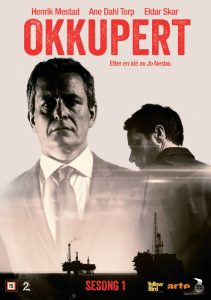
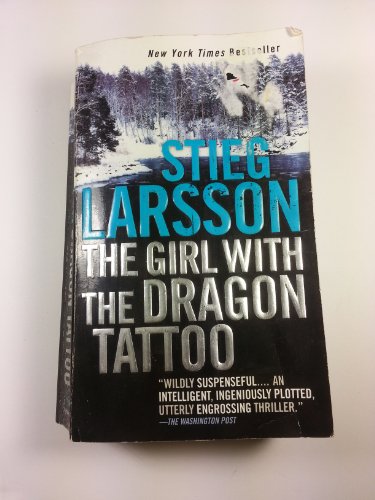
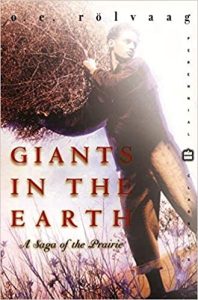
You must be logged in to post a comment.